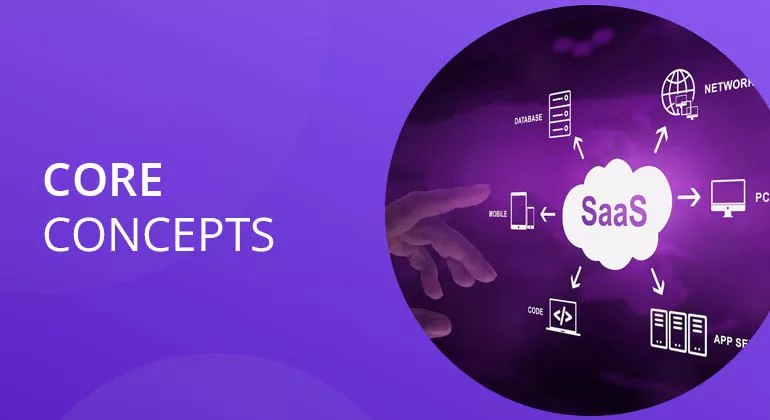The general definition of SaaS (Software as a Service) describes it as a software delivery and deployment model where the application is hosted in the cloud by the service provider and delivered to the user over the network and the Internet. SaaS platforms and applications allow users to use them anytime, anywhere, regardless of device type or performance. They enable real-time collaboration, save infrastructure costs, and increase flexibility. Because the model offers many benefits, it has become very popular in recent years, not only in enterprise environments but also among everyday users.
According to a McKinsey study, the SaaS market will continue to grow in the coming years and is expected to reach nearly USD 200 billion by 2024.
SaaS benefits
Cloud and SaaS (Software as a Service) implementation are critical to successful digital transformation strategies. There are many examples of how SaaS – Software as a Service – can help companies in their digitalization efforts. Here are some of them:
1. Demand fulfilment and business agility
Technology never stops evolving, and customer expectations grow along with it. Other external factors, such as the increase in remote working caused by the pandemic, are influencing the way products and services are delivered. Companies must always be ready to embrace change. SaaS empowers businesses on their digital transformation journeys and keeps them agile. The combination of scalability and continuous improvement of functionality allows companies to future-proof their business and technology investments.
2. Time-saving
IT departments need time and resources to implement, maintain and update local software. Adopting and implementing SaaS solutions can reduce the time and resources spent on IT-related operational support. Companies can be more efficient at integrating IT systems and operational technologies through SaaS.
3. Improving cooperation
Forms and processes that are structured and easily accessible to everyone enable effective collaboration between departments. SaaS solutions also help improve products, processes, and services with the ability for simultaneous input from anywhere in the world.

4. Security
SaaS providers leverage the latest security technologies, from data encryption to multi-factor authentication and API keys.
Modern cloud applications are built to prevent potential threats such as hackers, malware, and data leaks. In addition, SaaS software updates are almost entirely non-invasive, unlike proprietary technology.
5. Availability and quality
Employees can access cloud files and applications using only an internet connection. This way, companies have the flexibility to operate globally easily and efficiently.
Because work done on cloud applications can be measured, analyzed, and modified by management teams, performance can also be improved. Cloud-based applications can be released to the market faster, giving users early access to provide feedback for further improvements.
Solvedio is a comprehensive and dynamic cloud-based enterprise SaaS digitalization platform.
Forms, processes, approaches, charts, or notifications can be configured in Solvedio to create a tool comparable to custom software. This simple online application platform quickly and comprehensively covers users’ requirements by adding tools and features according to their needs. Users can choose one of the pre-made applications or create their own application tailored to their needs and requirements with the assistance of our experts.
To learn more, book a Solvedio demo with our experts.
